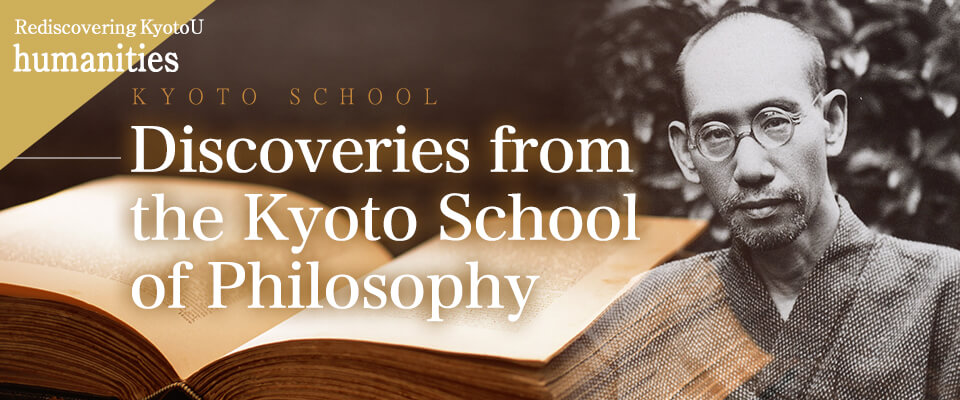
The Internet Governance Forum (IGF) 2023 convenes in Kyoto, the historical capital of Japan. With its long tradition of philosophical studies, the city provides a fitting venue for debate on AI, which increasingly centres around questions of ethics, epistemology, and the essence of human existence. The work of the Kyoto School of Philosophy on bridging Western and Asian thinking traditions is gaining renewed relevance in the AI era. In particular, the writings of Nishida Kitaro, father of Japanese modern philosophy, shed light on questions such as human-centred AI, ethics, and the duality between humans and machines.
Nishida Kitaro, in the best tradition of peripatetic walking philosophy, routinely walked the Philosopher’s Path in Kyoto alone. Yesterday, I traced his paths while trying to experience the genius loci of this unique and historic place.

On the Philosopher’s Path in Kyoto
Here are a few of Nishida Kitaro’s ideas that could help us navigate our AI future:
Humanism
Nishida’s work is deeply rooted in understanding the human condition and is heavily influenced by humanistic principles. His philosophy emphasizes the interconnectedness of individuals and the importance of personal experience and self-awareness.
This perspective serves as a vital reminder that AI should be designed to enhance human capabilities and improve the human condition rather than diminish or replace human faculties. By integrating humanistic values, AI can be developed to support human growth, creativity, and well-being, ensuring that technology serves as a tool for empowerment rather than a substitute for human interaction and understanding.
Self-Awareness and Place
Nishida delved deeply into metaphysical notions of being and non-being, the self and the world. His exploration of these concepts often intersected with themes of nihilism, questioning the inherent meaning and value of existence. As the debate on artificial generative intelligence advances, Nishida’s work could offer valuable insights into the contentious issues of machine consciousness and self-awareness. It begs the question: what would it mean for a machine to be ‘aware,’ and how would this awareness correlate with human notions of self and consciousness? Furthermore, how might nihilistic perspectives influence our understanding of machine self-awareness, challenging the essence of consciousness in a world where meaning is not preordained?
Complexity
Nishida paid significant attention to the complexities inherent in both logic and epistemology. He explored how these complexities are not merely abstract concepts but are deeply intertwined with the lived experiences and cultural contexts of individuals. Nishida’s work delves into the dynamic interplay between the subjective and objective realms, emphasizing that understanding complexity requires a holistic approach that considers both the internal and external factors influencing human thought and behavior. His work could serve as a foundational base for developing algorithms that can better understand and adapt to the complexities of human society.e complexities of human society.
Interconnectedness
Nishida’s philosophy strongly critiques the traditional Western view of dualistic perspectives of essence and form. This line of thinking is often extended to understanding the complex relationships between humans and machines. He would likely assert that humans and machines are fundamentally interlinked, challenging the conventional separation. In this interconnected arena, beyond traditional dualistic frameworks (AI vs humans, good vs bad), we must develop innovative approaches to AI.

Nishido Kitara, founder of the Kyoto School of Philosophy
Absolute Nothingness
Nishida anchors his philosophy in absolute nothingness, which resonates strongly with Buddhism, Daoism, and other Asian thinking traditions that nurtured the concept of ‘zero’, which has shaped mathematics and our digital world. Nishida’s notion of ‘absolute nothingness’ could be applied to understand the emptiness or lack of inherent essence in data, algorithms, or AI.
Contradictions and Dialogue
Contradictions are an innate part of human existence and societal structures. For Nishida, these contradictions should be acknowledged rather than considered aberrations. Furthermore, these contradictions can be addressed through a dialectic approach, considering human language, emotions, and contextual elements. The governance of AI certainly involves many such contradictions, and Nishida’s philosophy could guide regulators in making the necessary trade-offs.
Ethics
Nishida’s work aims to bridge Eastern and Western ethics, which will be one of the critical issues of AI governance. He considers ethics in the wider socio-cultural milieus that shape individual decisions and choices. Ethical action, in his framework, comes from a deep sense of interconnectedness and mutual responsibility.
Nishida Kitaro would advise AI developers to move beyond codifying ethical decision-making as a static set of rules. Instead, AI should be developed to adapt and evolve within the ethical frameworks of the communities they serve, considering cultural, social, and human complexities.
Conclusion
As the IGF 2023 unfolds in the philosophical heartland of Kyoto, it’s impossible to overlook the enriching influence of Nishida Kitaro and the Kyoto School. The juxtaposition is serendipitous: a modern forum grappling with the most cutting-edge technologies in a city steeped in ancient wisdom.
While the world is accelerating into an increasingly AI-driven future, Kitaro’s work helps outline a comprehensive ethical, epistemological, and metaphysical framework for understanding not just AI but also the complex interplay between humans and technology. In doing so, Nishida’s thinking challenges us to envision a future where AI is not an existential threat or a mere tool but an extension and reflection of our collective quest for meaning.
A Philospher’s Walk in the steps of Nishida Kitaro could inspire new ideas for addressing AI and our digital future.
Click to show page navigation!





